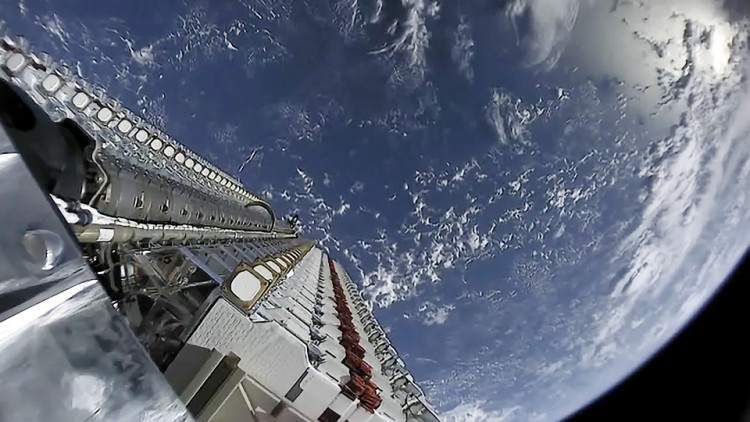The FCC has given SpaceX the green light to operate up to 1 million ground-based user terminals needed for its Starlink project. These terminals will communicate with the company's satellites in order to provide ultra-fast speed internet to millions of users across the globe.
SpaceX's Starlink mega-constellation now has more than 350 satellites floating in low-orbit Earth, but the company's goal is to launch more than 40,000 of them. So far, FCC has approved 12,000.
CEO Elon Musk said that the terminals aren't hard to install. These "UFOs on a stick" simply have to be plugged in and pointed towards the sky.
FCC's approval arrives a year after SpaceX's request, which the company announced via a public notice dated March 18. Musk's company has been given a blanket license allowing them to operate up to 1,000,000 user terminals on Earth that will communicate with Starlink satellites.
While one million user terminals seem more than enough, it's still lacking to cover the whole of the United States alone. SpaceX will likely file for another license to add more, though the company hasn't made announcements yet.
SpaceX's Starlink project aims to provide global internet coverage, particularly targeting areas often left without an internet connection or have to suffer slow speeds. People around the world all depend on satellites high up in space, beaming down internet coverage or have it routed via cables and cell towers directly to our homes. However, not all people are blessed with this incredible piece of technology.
Through Starlink, Musks aims to provide hard-to-reach areas with a reliable internet connection at an affordable price by launching the satellites to low-orbit, where they can transmit coverage better and faster. SpaceX's initial goal is to set a total of 1,584 satellites in space, which will gradually increase.
According to Musk, a minor broadband coverage will require 400 Starlink satellites and moderate coverage will need 800. SpaceX's internet coverage could start sometime this year, first in the U.S., then Canada, and global coverage should follow soon after.
It's a timely project for SpaceX, something that the world really needs right now, considering only 58% of households worldwide have access to the internet, according to the United Nations. This means that people in major cities will probably come last, given coverage is strong in highly industrialized areas. For those living in rural areas, however, the opportunity of having faster speeds should arrive soon.






